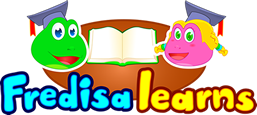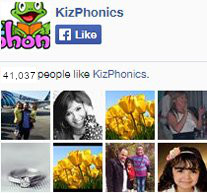Riddles in Children’s Phonics Education: A Journey from Fun to Fundamental Learning
Riddles have graced cultures and traditions for centuries, providing entertainment, imparting wisdom, and encouraging deep thought. In the context of children's phonics education, riddles serve as both a playful diversion and an effective teaching tool. Whether they are riddles funny enough to tickle the funny bone or riddles hard enough to challenge the mind, they always present an opportunity for kids to expand their linguistic horizons.
Understanding Riddles: Definition and Meaning
To fully appreciate the value riddles offer in phonics education, it's essential to grasp their essence. The riddles definition, in its simplest form, is a question or statement that often requires creative thinking to solve. Delving deeper into riddles meaning, especially in a phonetic context, it becomes evident that riddles encourage children to think beyond the literal and understand words in diverse settings.
The Spectrum of Riddles: From Easy to Hard
One of the beauties of riddles lies in their vast range. Riddles easy enough for beginners provide a gentle introduction, allowing kids to appreciate the playfulness of language. As children grow and their comprehension skills advance, introducing riddles hard in nature can stretch their thinking further.
Riddles for Kids: The Perfect Blend of Learning and Play
Why are riddles for kids so compelling in the realm of phonics education? The answer lies in the blend of amusement and learning they offer. When children encounter riddles with answers, the experience becomes interactive. They aren't just passive consumers; they actively engage, try to solve the puzzle, and revel in the joy of discovery when they decipher the answer or learn about it.
The Fun Element: Riddles Funny in Nature
Children are naturally drawn to anything that evokes laughter or joy. Riddles funny in their essence serve as fantastic hooks. They aren’t just about the punchline but are also valuable in making phonetic sessions more captivating and memorable. When children laugh, they're more likely to remember, ensuring that the phonetic lessons hidden within these riddles leave a lasting impact.
Fact Section: FAQs
Q: How do riddles integrate into a child's phonics education?
A: Riddles, with their wordplay and diverse meanings, encourage children to delve deeper into language, enhancing their listening, comprehension, and critical thinking skills in the process.
Q: Why is it beneficial to have a range of riddles from easy to hard?
A: A variety caters to kids of different ages and comprehension levels, ensuring that everyone has a fitting challenge and no one feels left out.
Q: How do riddles with answers enhance the learning process?
A: These riddles make the experience interactive, allowing kids to validate their understanding, and bask in the pleasure of solving a puzzle.
Q: Can riddles funny in nature still be educational?
A: Absolutely! While they entertain, these riddles also present phonetic patterns and wordplay, making learning more engaging and effective.
Q: Where can I find more resources that incorporate riddles into phonics education?
A: The Kizphonics Phonics Blog is a treasure trove of resources, combining riddles with robust phonetic lessons.
In the vast arena of phonics education tools, riddles stand out for their unique ability to merge fun with foundational learning. They remind us that learning doesn't have to be mundane; it can be magical, mysterious, and mirthful. Introducing children to the enchanting world of riddles not only bolsters their phonetic prowess but also kindles a lifelong passion for language. Dive into the spellbinding realm of riddles and watch as words dance, play, and educate in harmony.











